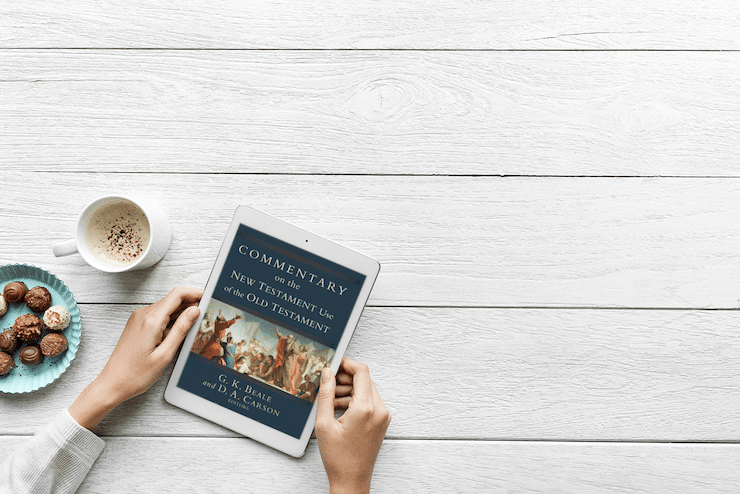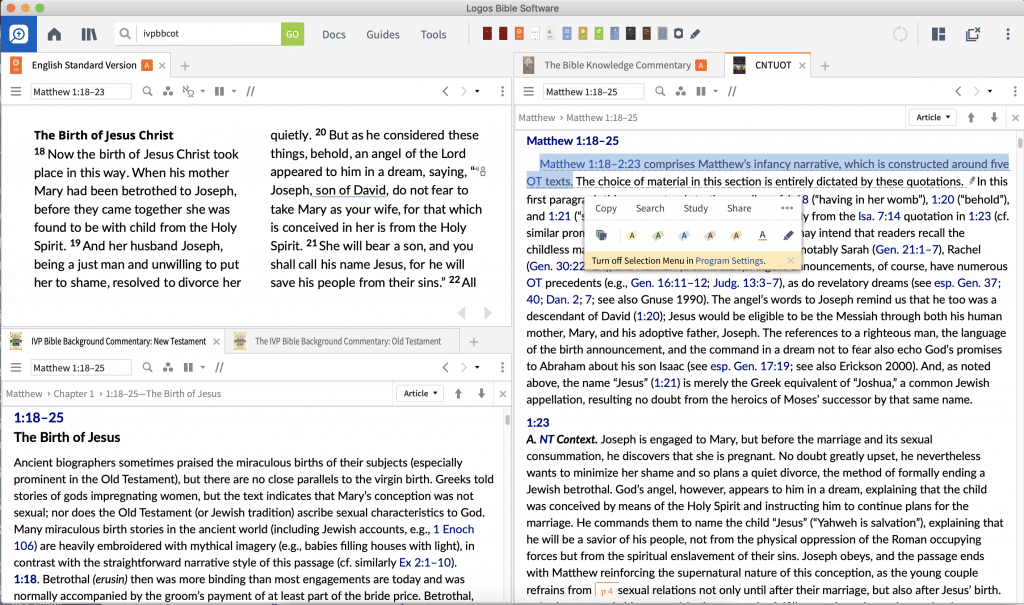
To show my hand a little from the start, if I boil this down it is basically a huge hype post for this amazing commentary in its digital Logos Bible Software format, Commentary on the New Testament Use of the Old Testament.
For a lot of people, the Old Testament is just that—the Old Testament. We’ve got a new one so we might as well focus on that one, right? This train of thought is probably the exact reason that John Goldingay wrote what he titled, The First Testament. When we boil things down, we really ought to think of the Old Testament and the New Testaments more like our first and second testaments. That is to say, one isn’t dated and obsolete, but instead a continuation of the same work that God is doing in and through his people. And the work of Christ doesn’t truncate all that happened through the first “half” of the Bible, but instead, Christ’s work completes it, fulfills it, and truly does a great job of revealing all that God was up to in the Old Testament.
With that out of the way, we ought to begin to understand the importance of the Old Testament. Take a look at the book of Hebrews, for example, and try to wade your way through without having the Old Testament within reach. All that Moses accomplished, but Jesus did it better. The exile, Jesus did it better. All that the priesthood and the sacrificial system accomplished, Jesus did it better. Angels, creation, prophets, and the list goes on … and Jesus did it better. But the book of Hebrews was written to a very Jewish audience that understood the Old Testament much better than most of us do or ever will. So, without having to memorize the Pentateuch, how do we make sense of the Old Testament quotations and allusions found throughout the New Testament—especially the moments in God’s Word that a New Testament author interprets and elaborates a passage or verse from the Old Testament?
There are people who have devoted most of their life to a better understanding of how the New Testament and the Old Testament work together. G.K. Beale is one of those people (I had the privilege of taking one of his classes on New Testament Theology while at Wheaton College, and it completely blew my mind). He introduced me, and countless others, to the importance of seeing the entirety of God’s story across the testaments. So when I saw that he and D.A. Carson had put all of their research (alongside the from a number of other scholars) into a commentary, The Commentary on the New Testament Use of the Old Testament, I had to grab it (and share it with you, obviously).
The official words on this commentary follow, but I’ll boil it down a bit more and give you an example of just how helpful this commentary is:
Readers of the New Testament often encounter quotes or allusions to the Old Testament that may be unfamiliar or obscure. In this volume, G. K. Beale and D. A. Carson have brought together a distinguished team of scholars to isolate, catalog, and comment on both the obvious Old Testament quotations and the more subtle allusions found in the New Testament. The result is a comprehensive commentary on the Old Testament references that appear from Matthew through Revelation. It is a vital resource for the reference library of every student of the New Testament.
Put simply, as you comb through the commentary you’ll discover insights across testaments and even between the testaments. So if you flip to Matthew 1, you don’t see just commentary on what Matthew’s intended audience may have understood it, but how Matthew deployed insights from also the Old Testament, Jewish thought, intertestamental citations, thoughts, quotes, and more. Here’s a screenshot:

In the Logos edition, this valuable volume is enhanced by amazing functionality. Scripture citations link directly to English Bible translations, and important terms link to dictionaries, encyclopedias, theology texts, and a wealth of other resources in your digital library. Perform powerful searches to find exactly what you’re looking for. Take the discussion with you using a tablet and mobile apps. With Logos Bible Software, the most efficient and comprehensive research tools are in one place, so you get the most out of your study.
Cover image provided by mockupshots.com.

